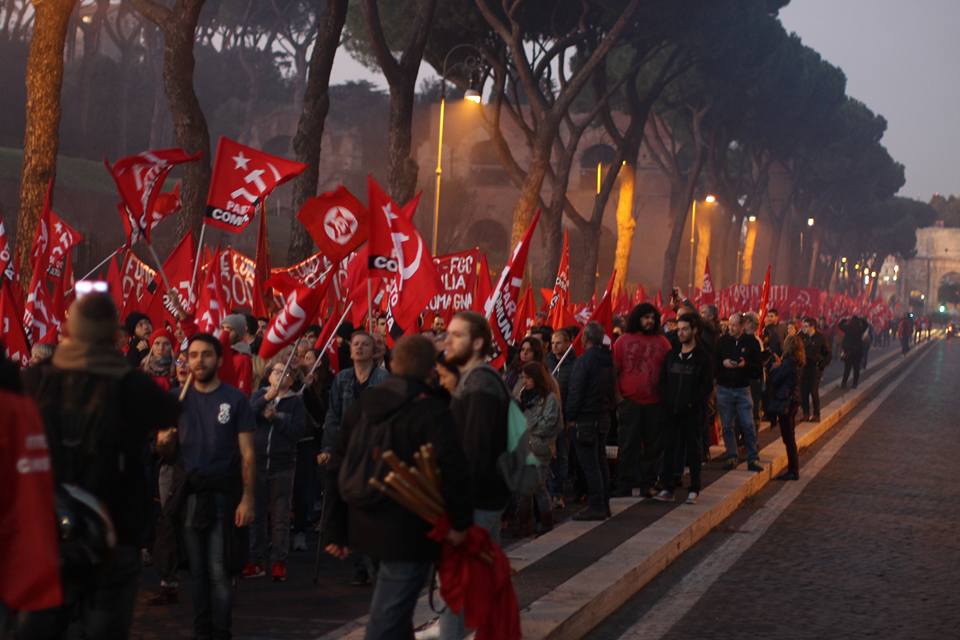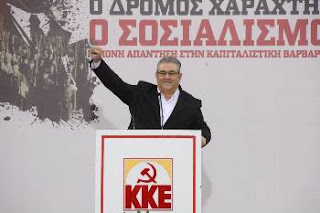Speech by José Ramón Machado Ventura, second secretary of the Party Central Committee and a vice president of the Councils of State and Ministers, in the political-cultural act to mark the centennial of the Great October Socialist Revolution, held at Havana’s Karl Marx Theater, November 7, 2017
Author: José Ramón Machado Ventura | informacion@granma.cu
november 9, 2017 14:11:42

“The principles of equality, solidarity, internationalism, social justice, the peoples’ right to self-determination, independence and sovereignty, which were the basis of the October Revolution, will also continue to be ours,” stated José Ramón Machado Ventura, second secretary of the Party Central Committee and a vice president of the Councils of State and Ministers. Photo: Juvenal Balán
Compañero Army General Raúl Castro Ruz, First Secretary of the PCC Central Committee
Compañeras and compañeros:
We are gathered to commemorate one of the most significant events of the twentieth century: the Great October Socialist Revolution, with which a new era for humanity commenced.
Today, in some media there is a tendency to diminish the importance of the Revolution that led to the founding of the world’s first socialist state and opened a path of hope, giving way to a new social regime that would show that a world free of exploiters and the exploited was possible. Attempts are made to diminish and even disregard the role played by its eminent leader, Vladimir Ilich Lenin.
Comandante en Jefe Fidel Castro Ruz, on referring to Lenin stated: “He was a brilliant revolutionary strategist who did not hesitate to assume Marx’s ideas and implement them in a vast and only partially industrialized country... Lenin was a truly exceptional man, capable of interpreting all the depth, essence and value of Marxist theory,” end of quote.
He had the merit of taking advantage of a moment of crisis of imperialism, provoked by its own war, and the growth of the labor movement in Czarist Russia, to carry out the socialist Revolution. He was the man who was met with incomprehension in his own surroundings, but at the same time he had, like no other at that time, the greatest understanding of the humble, of the workers aware that the seizure of political power was the only way to lead them to their emancipation.
It was precisely Lenin’s brilliant leadership that gave rise to that great Revolution, with which important changes ensued for the oppressed of this world.
One hundred years later, it is impossible to deny the immense contribution and legacy of the Bolshevik Revolution, which gave way to other great social revolutions of the 20th century, which emerged a few years after the victory against fascism, like that of China, the Vietnamese and the Cuban.
The events that followed October, the implementation of Marxist theory in the specific conditions of the time, demonstrated the relevance of the global social revolution, for which, in the words of Lenin, the Russian (Revolution) was just the prologue or a step.
The process of decolonization would not have been possible without the enormous influence of the October Revolution, in that it decisively contributed to the right of the peoples to self-determination and independence becoming a reality in many countries of the world.
An undeniable contribution of this great feat was the beginning of the process of political-economic structuring of a new system: socialism.
The Revolution favored the drastic change in the correlation of world forces, demonstrated that the elimination of exploitation was possible, that there were other forms of government and democracy, and that alternatives existed beyond the formulas offered by capitalism, generating wars and divisions, overwhelming peoples and nations.
In the field of international relations, it inaugurated a new way of doing and acting. In the Decree on Peace and in the Declaration of the Rights of the Peoples of Russia, expressed were the principles that should govern the relations between states and peoples, which are still fully valid today.
The USSR achieved, in a historically very short period, technological and industrial development. It eradicated illiteracy, generalized schooling, reached a high scientific level, ensured employment and social protection, eliminated discrimination against women and proclaimed their rights, as well as those of children and young people.
These achievements were obtained in the midst of military, economic and political aggression. The nascent socialist state made the postulates of its Revolution a reality through blood and fire, and began to build itself in a country totally ruined, bled dry and blockaded, which required no less hard and heroic efforts.
There were many contributions and efforts from the peoples that made up the USSR, but none more significant than the defeat of fascism, which deserves eternal gratitude.
The influence of the October Revolution and the battle for multifaceted development being waged in what was the most backward imperial country of its time, also reached Latin America, where the ideas of the Revolution were disseminated and communist parties began to emerge, including that of Cuba, in the midst of the conditions of first an invaded, and later a neocolonial republic.
In this and other Cuban revolutionary groups that confronted imperialist domination and its complicit governments of the day, present were, along with the ideas of Martí, the ideas of the October Revolution, the ideas of Marxism-Leninism.
In 1970, on the occasion of commemorating the centenary of Lenin’s birth, the historic leader of the Cuban Revolution stated: I quote “Without the October Revolution of 1917, Cuba could not have been constituted as the first socialist country in Latin America.” Later, in 1972, in a profound reflection on the roots of our socialist Revolution, he specified: “the revolutionary process of Cuba is the confirmation of the extraordinary strength of the ideas of Marx, Engels and Lenin,” end of quote.
During these 100 years, but mainly since the disappearance of the socialist system in Europe, much has been written and debated, from very different ideological positions, about this Revolution. Regrettably, extreme positions converge to point out that its ideas failed, with a marked distortion of the causes and consequences, with the intention of imposing a single mindset destined to highlight the supremacy of capitalism against socialism.
The October Revolution initiated an extraordinarily complex process, with achievements and mistakes, but to judge it we must take into account, first of all, the historic conditions in which it was developed, the international context and the contradictions generated by any revolutionary process. It was also the first great attempt to transform the world, to turn utopia into reality.
Imperialism today seeks new alliances and attempts by all possible means to stifle and destroy any attempt at social change.
In this historical context we can affirm that the ideas that inspired it and socialism as a system maintain full force. The principles of equality, solidarity, internationalism, social justice, the peoples’ right to self-determination, independence and sovereignty, which were the basis of the October Revolution, will also continue to be ours.
Long live the Great October Socialist Revolution!
Thank you.
http://en.granma.cu/cuba/2017-11-09/the ... r-humanity



